
Find Help
More Items From Ergsy search
-

Obesity
Relevance: 100%
-

What causes obesity?
Relevance: 89%
-

How is obesity measured?
Relevance: 87%
-

Can genetics influence obesity?
Relevance: 84%
-

How can obesity be prevented?
Relevance: 83%
-

What treatments are available for obesity?
Relevance: 83%
-

What are the current statistics on childhood obesity in the UK?
Relevance: 81%
-

What health risks are associated with obesity?
Relevance: 81%
-

What is the impact of obesity on mental health?
Relevance: 81%
-
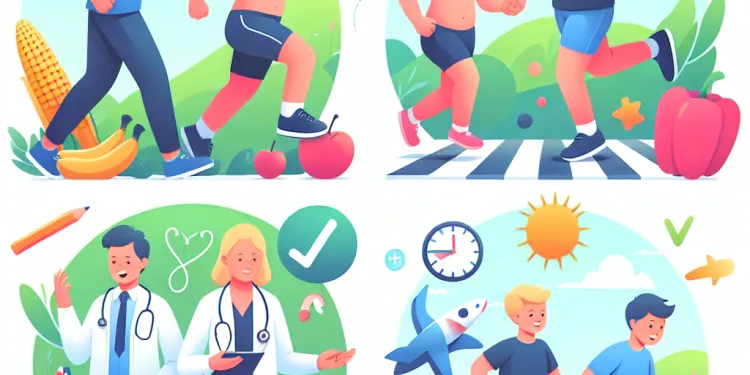
Is childhood obesity a concern in the United Kingdom?
Relevance: 81%
-
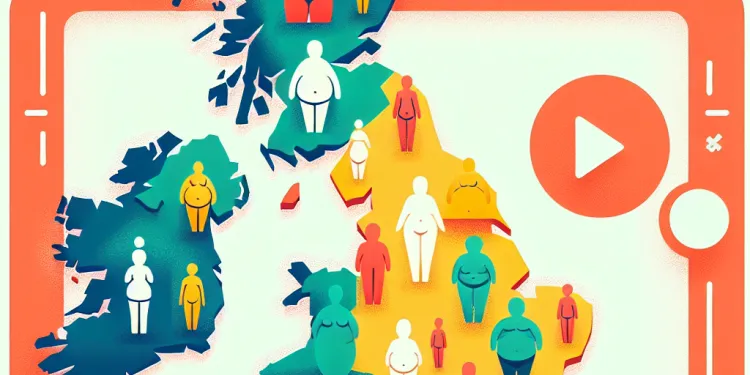
Is obesity more prevalent in certain regions of the UK?
Relevance: 81%
-

Is childhood obesity a concern in the United Kingdom?
Relevance: 81%
-

Are there any societal factors that contribute to obesity?
Relevance: 79%
-

What role do sugary drinks play in obesity?
Relevance: 75%
-
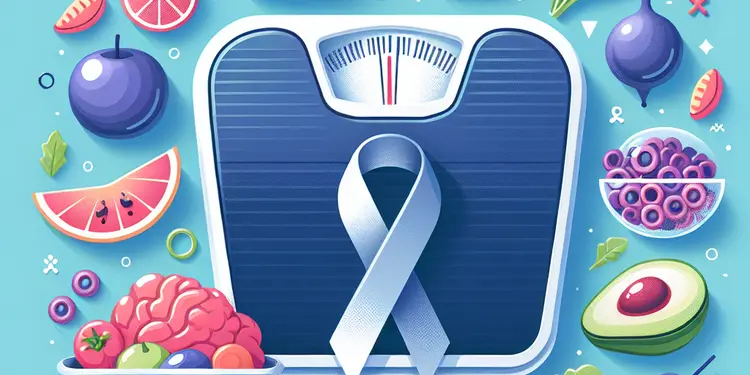
How does obesity affect bowel cancer rates?
Relevance: 75%
-

How important is physical activity in preventing obesity?
Relevance: 74%
-

What role does diet play in managing obesity?
Relevance: 72%
-

Do weight loss jabs work for all types of obesity?
Relevance: 71%
-

Study Finds Alarming Increase in Childhood Obesity Rates Post-Pandemic
Relevance: 70%
-

What impact has the sugar tax had on obesity rates?
Relevance: 70%
-

What condition does Wegovy treat?
Relevance: 35%
-

Can Wegovy tablets be used for children?
Relevance: 32%
-

Can Wegovy be used by children?
Relevance: 29%
-

What are the long-term goals of the sugar tax?
Relevance: 27%
-

What are risk factors for developing sleep apnea?
Relevance: 27%
-
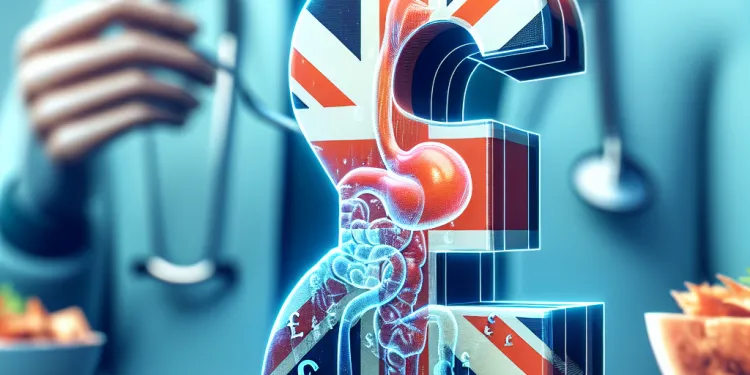
How does GLP-1 affect appetite?
Relevance: 27%
-

What causes Type 2 Diabetes?
Relevance: 26%
-

How does the sugar tax align with public health strategies?
Relevance: 26%
-

What is junk food?
Relevance: 25%
-

What is the purpose of the sugar tax?
Relevance: 24%
-

What is the sugar tax in the UK?
Relevance: 24%
-
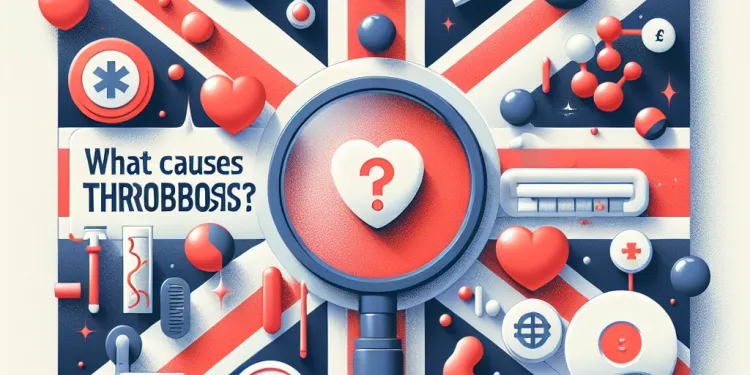
What causes thrombosis?
Relevance: 24%
-
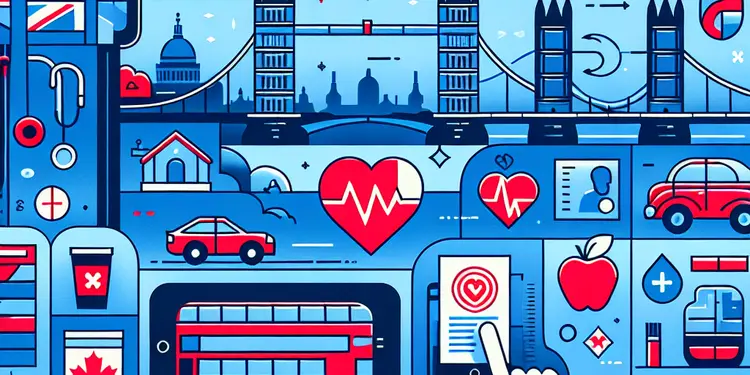
What are the risk factors for a heart attack?
Relevance: 24%
-

Has the sugar tax affected the sugar content in drinks?
Relevance: 23%
-

Endometrial Cancer
Relevance: 23%
-

Endometrial Cancer
Relevance: 23%
-

Who is at higher risk for thrombosis?
Relevance: 23%
-

Can Wegovy help with weight loss in non-obese individuals?
Relevance: 23%
-
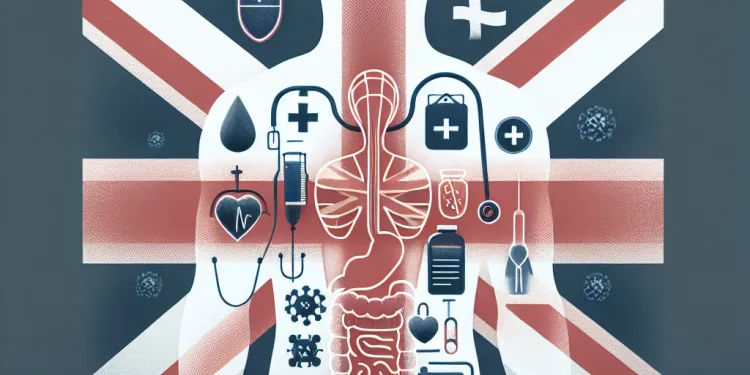
Where is GLP-1 produced in the body?
Relevance: 23%
-

Has the sugar tax been effective?
Relevance: 22%
Understanding Obesity: A Growing Concern in the UK
What is Obesity?
Obesity is a medical condition characterized by excessive body fat accumulation that poses a risk to health. It is typically measured using the Body Mass Index (BMI), where a person is considered obese if they have a BMI of 30 or higher. In the United Kingdom, obesity is a significant public health issue, with nearly one in four adults classified as obese. This rising prevalence of obesity has serious implications for the nation’s health services and economy.
Causes of Obesity
The causes of obesity are multifaceted and include genetic, environmental, and behavioral factors. Lifestyle choices, such as poor diet and lack of physical activity, are leading contributors. The increased availability and consumption of calorie-dense, processed foods, along with sedentary lifestyles, have significantly impacted obesity rates. Additionally, socioeconomic factors play a crucial role, with those in lower-income households disproportionately affected.
Health Implications
Obesity is associated with numerous health complications, including type 2 diabetes, cardiovascular diseases, stroke, and certain types of cancer. The condition also impacts mental health, leading to issues such as depression and low self-esteem. The healthcare system in the UK faces challenges in managing these obesity-related illnesses, which increase healthcare costs and burden services.
Prevention and Management
Preventing and managing obesity requires a comprehensive approach. Public health campaigns in the UK aim to encourage healthier eating habits and promote regular physical activity. The NHS provides resources for individuals seeking support in weight management, including nutritional guidance and behavioral therapies. Community initiatives and policies focusing on creating healthier environments are also essential in tackling the obesity epidemic.
Government and Community Initiatives
The UK government has implemented several policies to combat obesity, such as the soft drink industry levy to reduce sugar consumption. Local authorities are working to create environments that make physical activity more accessible and affordable. Community programs promoting cooking skills and nutrition awareness are essential in empowering individuals to make healthier choices.
Understanding Obesity: A Big Problem in the UK
What is Obesity?
Obesity means having too much body fat, which can make you sick. We use a number called Body Mass Index (BMI) to check obesity. If your BMI is 30 or more, you are considered obese. In the UK, many people struggle with obesity. About one out of every four adults is obese. This creates challenges for doctors and costs a lot of money for healthcare.
Causes of Obesity
There are many reasons for obesity. Some people have genes that make them gain weight easily. Eating unhealthy food and not moving enough are big reasons too. Many foods today are high in calories and not very healthy. People also spend a lot of time sitting, for example, watching TV or using computers. People with less money may find it harder to eat healthily and stay active.
Health Problems
Obesity can cause many health problems. It can lead to type 2 diabetes, heart disease, stroke, and even some kinds of cancer. It can also affect how people feel, making them sad or have low self-esteem. The UK’s healthcare system finds it hard to deal with all these obesity-related health issues, and it costs a lot of money.
How to Prevent and Manage Obesity
To prevent and manage obesity, we need to work together on different things. In the UK, there are campaigns to help people eat better and move more. The NHS offers help if you need support with your weight. They can give you tips on eating and exercise. Communities also work on making places healthier and safer for physical activities.
Government and Community Help
The UK government is trying to help lower obesity by making rules, like adding a levy on sugary drinks to reduce sugar intake. Local communities are creating spaces where people can easily do physical activities. There are also programs that teach cooking skills and how to eat healthy, helping people make smarter food choices.
Frequently Asked Questions
What is obesity?
Obesity is a medical condition characterized by an excessive accumulation of body fat to the extent that it may have a negative effect on health. It is typically measured using the Body Mass Index (BMI), where a BMI of 30 or higher is considered obese.
What causes obesity?
Obesity is caused by a combination of genetic, environmental, and lifestyle factors. Common causes include overeating, lack of physical activity, genetics, and certain medical conditions. High-calorie diets, sedentary lifestyles, and lack of sleep can contribute significantly to weight gain.
How is obesity measured?
Obesity is primarily measured using Body Mass Index (BMI), which is calculated by dividing a person's weight in kilograms by the square of their height in meters. A BMI of 30 or above classifies an individual as obese.
What health risks are associated with obesity?
Obesity increases the risk of numerous health issues, including type 2 diabetes, heart disease, stroke, cancer, and osteoarthritis. It is also linked to mental health issues such as depression and anxiety.
How can obesity be prevented?
Preventing obesity involves adopting a healthy lifestyle, including a balanced diet rich in fruits, vegetables, and lean proteins, regular physical activity, adequate sleep, and stress management. Public health interventions and policies can also play a crucial role in prevention.
What treatments are available for obesity?
Treatments for obesity include lifestyle changes such as diet and exercise, behavioral therapy, medications, and in some cases, bariatric surgery. A healthcare professional can provide guidance on the most appropriate treatment based on individual needs.
Can genetics influence obesity?
Yes, genetics can play a role in obesity. While lifestyle factors are significant contributors, genetic predispositions can affect metabolism, appetite, and fat distribution, increasing the likelihood of developing obesity in certain individuals.
Is childhood obesity a concern in the United Kingdom?
Yes, childhood obesity is a significant public health concern in the UK. It can lead to health problems such as diabetes and cardiovascular issues later in life. Early intervention, promoting healthy eating habits, and encouraging physical activity are key in addressing it.
What role does diet play in managing obesity?
Diet plays a crucial role in managing obesity. Reducing calorie intake, choosing nutrient-dense foods, and limiting processed and high-sugar foods can help in weight management. Consulting with a dietitian can provide a tailored eating plan to aid weight loss.
How important is physical activity in preventing obesity?
Regular physical activity is essential in obesity prevention as it helps to burn calories, maintain muscle mass, and improve overall health. The NHS recommends at least 150 minutes of moderate aerobic activity per week for adults.
Can stress contribute to obesity?
Yes, stress can contribute to obesity by affecting hormones that regulate appetite, leading to increased food intake, and by fostering unhealthy eating habits as a coping mechanism. Stress management techniques can help in maintaining a healthy weight.
What is the impact of obesity on mental health?
Obesity can have a significant impact on mental health, contributing to conditions such as depression, anxiety, and low self-esteem. This can create a negative feedback loop, where mental health issues further exacerbate obesity through emotional eating and reduced motivation for physical activity.
Are there any societal factors that contribute to obesity?
Yes, several societal factors contribute to obesity, including food marketing, socioeconomic status, and urban planning that limits access to healthy food options and safe places for physical activity. Addressing these factors requires comprehensive public health policies and community initiatives.
What role do sugary drinks play in obesity?
Sugary drinks contribute to obesity by providing excess calories with little nutritional value. Regular consumption of such drinks is associated with weight gain and an increased risk of type 2 diabetes and other health issues.
Is obesity more prevalent in certain regions of the UK?
Yes, obesity prevalence can vary by region due to differences in socioeconomic factors, lifestyle behaviors, and access to healthcare services. Generally, higher rates of obesity are found in more deprived areas.
What is obesity?
Obesity means having too much body fat. It can make you sick. People with obesity might not feel well and can get other health problems.
To understand more, you can:
- Look at pictures and videos that explain obesity.
- Talk to a doctor or nurse who can help you learn.
- Ask someone you trust to explain it to you.
Obesity means having too much body fat, which can make you sick. Doctors check this with the Body Mass Index (BMI). If your BMI is 30 or more, you are considered obese.
Why do people get very overweight?
Being very overweight happens for different reasons. It can be because of:
- Eating too much food.
- Not moving around enough or playing sports.
- Family genes, which are passed down in families.
- Some illnesses that make people gain weight.
Eating lots of unhealthy food, sitting too much, and not sleeping enough can make you gain weight.
Here are some things that can help:
- Try to eat healthy foods like fruits and vegetables.
- Go for a walk or play outside every day.
- Get enough sleep every night.
How do we know if someone is obese?
Doctors use something called BMI to know if someone is obese. BMI stands for Body Mass Index.
To find out your BMI, doctors look at your height and weight. They use a special chart or calculator to get the number.
If the number is high, it might mean someone is obese.
If you want to know more or need help, you can ask a doctor or use a BMI calculator online.
Doctors use a number called BMI to see if someone is too heavy. BMI is short for Body Mass Index. This number tells if a person might be obese or too heavy.
To find BMI, you take someone's weight in kilograms and divide it by their height in meters, multiplied by itself.
If the BMI number is 30 or more, the person is called obese.
Tools you can use are:
- a simple calculator to work out BMI
- a measuring tape to measure your height
What health problems can being very overweight cause?
Being very overweight can make people sick. It can cause sicknesses like type 2 diabetes, heart problems, stroke, cancer, and hurting joints. It can also make people feel sad and worried.
Use a dictionary to help with hard words. Speaking with someone you trust, like a teacher or a family member, can also help you understand better.
How can we stop people from becoming too heavy?
It is important to stay healthy and not too heavy. Here are some things you can do:
Eat healthy foods: Try to eat more fruits and vegetables. Avoid too many sweets and junk food.
Be active: Move your body every day. You can play, dance, or go for a walk.
Drink water: Water is good for your body. Try to drink it instead of sugary drinks.
Get enough sleep: Sleeping well helps you stay healthy. Try to go to bed at the same time every night.
Ask for help: Talk to an adult like a parent or teacher. They can help you make good choices.
You can use apps or videos that help you learn about healthy eating and exercise. Remember, small changes can help a lot!
To stop becoming too overweight, do some of these things:
- Eat healthy foods like fruits and vegetables.
- Eat foods with good proteins, like chicken or beans.
- Exercise and play outside or do sports.
- Get enough sleep at night.
- Try to stay calm and not get too stressed.
There can be rules and plans to help everyone stay healthy too.
These tips can help you stay healthy and strong. If you need help, talk to a teacher or a grown-up. It's also a good idea to use apps or charts to keep track of what you eat, how much you exercise, and your sleep. They can help you see how well you’re doing!
What can help if a person is very overweight?
If someone is very overweight, there are things that can help. Here are some ideas:
- Eating healthy foods: Try to eat more fruits and vegetables. Eat less sugary or fatty foods.
- Exercise: Moving your body can help. Try walking, dancing, or playing a sport.
- Doctor's help: Sometimes, a doctor can give special medicine to help.
- Talking to a professional: A dietitian or therapist can give advice and support.
Using a food chart, having an activity buddy, or setting small goals can be helpful too.
If someone is very overweight, there are ways to help them get healthier. They can eat better and move more, talk to someone who can help them change their habits, take special medicine, or sometimes get an operation. A doctor or nurse can help figure out what is best for each person.
Can genes make you overweight?
Some people have genes that can make them more likely to be overweight. Genes are like instructions in your body. They come from your parents.
These genes can make it easier to gain weight. But, things like eating healthy and being active can help.
If you find it hard to watch your weight, talk to a doctor or ask for help. They can give you advice and support.
There are tools like food diaries and activity trackers that can help you stay healthy.
Yes, your genes can make you more likely to be overweight. Things like eating and exercise are important, but your body might work like this because of your genes. Genes can change how your body uses food, feels hungry, and where it stores fat, making some people more likely to gain weight.
If you have trouble reading, you can ask someone to read with you. You can also use tools that read words out loud, like speech-to-text apps. These can help you understand better.
Is childhood obesity a worry in the UK?
Do children in the UK have problems with being too heavy?
Sometimes, children eat too much or do not move around enough. This can make them too heavy, which is not healthy.
If you are worried about your weight, there are things that can help:
- Talk to a doctor or nurse.
- Eat lots of fruits and vegetables.
- Play games and do fun activities to stay active.
Yes, many children in the UK have a big health problem. It's called childhood obesity. This means they weigh more than they should. It can make them sick when they grow up, with things like diabetes and heart problems.
We can help by starting early. It’s good to eat healthy foods and play or do activities to stay strong and fit.
Helpful tools like talking apps or picture cards can make it easier to learn about staying healthy. Families and schools can work together to support children.
How does what we eat help with losing weight?
What you eat is very important if you want to lose weight. Eating less food with many calories, like sweets and fried foods, can help. It's good to eat healthy foods like fruits and vegetables. Talking to a diet expert can help you make a plan to eat better and lose weight.
Why is moving your body important to stop getting too big?
Moving your body and doing exercise can help stop people from becoming too heavy. Exercise uses up energy, keeps your muscles strong, and makes you feel good. Doctors say grown-ups should do at least 150 minutes of exercise, like walking or cycling, every week.
Can stress make you gain weight?
Yes, stress can make you gain weight. It changes how hungry you feel, so you might eat more. Stress can also make you eat unhealthy foods to feel better. You can use stress management tools to help keep your weight healthy.
How does being very overweight affect how we feel and think?
Being very overweight can affect how we feel. It can make people feel sad, worried, or not good about themselves. This can make things worse because feeling bad can make people eat more when they are upset or not want to exercise.
If you feel upset about being overweight, talking to someone like a doctor or counselor can help. They can give advice. Doing activities that make you happy, like playing a game or going for a walk, can also help you feel better.
Do things in our community make people gain too much weight?
Yes, many things in our society can make people gain too much weight. These include ads for unhealthy food, not having enough money, and living in places where it's hard to find healthy food or safe places to play and exercise. To help fix these problems, we need good plans from the government and community programs.
How do sugary drinks make people gain weight?
Sugary drinks have a lot of sugar. Drinking them can make people gain weight. Here’s why: - Sugary drinks have lots of calories. Calories are energy. Too many calories can make you gain weight. - When we drink sugar, we might not feel full. This means we might eat more food, adding more calories. If you want to drink less sugar: - Try water or milk instead. - Look for drinks with less sugar on the label. - Ask a grown-up if you're not sure. These tips can help keep you healthy!Sugary drinks like soda can make people gain weight because they have a lot of calories and not many good things for your body. Drinking a lot of these drinks can make you more likely to get sick, like with type 2 diabetes.
If you need help understanding or reading things, you can ask someone to read with you. You can also use tools like audiobooks or text-to-speech apps to help you hear the words. Pictures or drawing things you read can also help you understand better.
Are more people overweight in some parts of the UK?
Yes, how many people are overweight can be different in each place. This is because of things like how much money people have, how they live their lives, and how easy it is to see a doctor. Usually, more people are overweight in places where people have less money.
Useful Links
This website offers general information and is not a substitute for professional advice.
Always seek guidance from qualified professionals.
If you have any medical concerns or need urgent help, contact a healthcare professional or emergency services immediately.
Some of this content was generated with AI assistance. We’ve done our best to keep it accurate, helpful, and human-friendly.
- Ergsy carfully checks the information in the videos we provide here.
- Videos shown by Youtube after a video has completed, have NOT been reviewed by ERGSY.
- To view, click the arrow in centre of video.
- Most of the videos you find here will have subtitles and/or closed captions available.
- You may need to turn these on, and choose your preferred language.
- Go to the video you'd like to watch.
- If closed captions (CC) are available, settings will be visible on the bottom right of the video player.
- To turn on Captions, click settings .
- To turn off Captions, click settings again.
More Items From Ergsy search
-

Obesity
Relevance: 100%
-

What causes obesity?
Relevance: 89%
-

How is obesity measured?
Relevance: 87%
-

Can genetics influence obesity?
Relevance: 84%
-

How can obesity be prevented?
Relevance: 83%
-

What treatments are available for obesity?
Relevance: 83%
-

What are the current statistics on childhood obesity in the UK?
Relevance: 81%
-

What health risks are associated with obesity?
Relevance: 81%
-

What is the impact of obesity on mental health?
Relevance: 81%
-

Is childhood obesity a concern in the United Kingdom?
Relevance: 81%
-

Is obesity more prevalent in certain regions of the UK?
Relevance: 81%
-

Is childhood obesity a concern in the United Kingdom?
Relevance: 81%
-

Are there any societal factors that contribute to obesity?
Relevance: 79%
-

What role do sugary drinks play in obesity?
Relevance: 75%
-

How does obesity affect bowel cancer rates?
Relevance: 75%
-

How important is physical activity in preventing obesity?
Relevance: 74%
-

What role does diet play in managing obesity?
Relevance: 72%
-

Do weight loss jabs work for all types of obesity?
Relevance: 71%
-

Study Finds Alarming Increase in Childhood Obesity Rates Post-Pandemic
Relevance: 70%
-

What impact has the sugar tax had on obesity rates?
Relevance: 70%
-

What condition does Wegovy treat?
Relevance: 35%
-

Can Wegovy tablets be used for children?
Relevance: 32%
-

Can Wegovy be used by children?
Relevance: 29%
-

What are the long-term goals of the sugar tax?
Relevance: 27%
-

What are risk factors for developing sleep apnea?
Relevance: 27%
-

How does GLP-1 affect appetite?
Relevance: 27%
-

What causes Type 2 Diabetes?
Relevance: 26%
-

How does the sugar tax align with public health strategies?
Relevance: 26%
-

What is junk food?
Relevance: 25%
-

What is the purpose of the sugar tax?
Relevance: 24%
-

What is the sugar tax in the UK?
Relevance: 24%
-

What causes thrombosis?
Relevance: 24%
-

What are the risk factors for a heart attack?
Relevance: 24%
-

Has the sugar tax affected the sugar content in drinks?
Relevance: 23%
-

Endometrial Cancer
Relevance: 23%
-

Endometrial Cancer
Relevance: 23%
-

Who is at higher risk for thrombosis?
Relevance: 23%
-

Can Wegovy help with weight loss in non-obese individuals?
Relevance: 23%
-

Where is GLP-1 produced in the body?
Relevance: 23%
-

Has the sugar tax been effective?
Relevance: 22%


